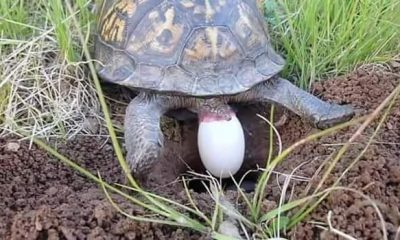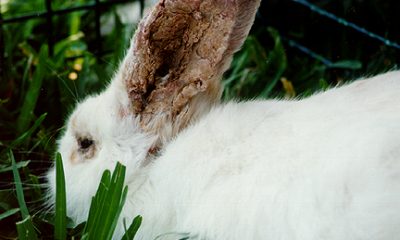Chinchilla
Tamed Chinchillas Telltales #Their Sounds and Meanings!!
Well, pets can be quite unique in their own right. Whether cats, dogs, or even rabbits, you would find them coming up with weird and strange kind of behavior. They tend to engage themselves in a few of the craziest behavior ever. If you are fond of chinchillas and love those cute animals, you would not find them different either.
We have found chinchillas indulging a lot of weird and crazy behavior that just brings a smile on your lips. Perhaps, that is precisely what makes you find them quite cute and great pets ever.
Recommended Reading – What Do Chinchillas Eat?
But, have you ever give a thought to chinchilla calling? Do they bark or do they produce any sort of sound? Well, they do make a variety of sounds. If you haven’t been with chinchillas before, you will find it quite difficult to understand different chinchilla sounds and their meanings.
Let us try to understand the different sounds and their meanings. In addition, you should also find means on how to follow the body language of the chinchillas.
Contents
Different Sounds From Chinchillas & What Do They Mean?
Chinchillas do indulge in several sounds. Of course, a few of the sounds that they make appear to be quite scary, but that should not mean they are actually worried. Some sounds are adorable, while a few others would be screams that may appear too scary.
We will check out a few of those sounds and understand their meanings.
A few of the chinchilla sounds you would find interesting can be found on this video:
Different Body Languages of Chinchillas & Their Meanings?
The sounds made by chinchillas apart, you would perhaps also want to understand the sounds made by the chinchillas to understand what exactly are they trying to communicate. The body language of a chinchilla would be an indication of its mood and attitude.
Chinchillas are always inquisitive and would want to explore new objects and environments quite thoroughly. However, since they are inherently prey animals, they may remain cautious most of the time. You would find them showing a huge range of body language and visual indications. Some of these behaviors would include jumps, head shaking, hopping, bucking, running, and body twisting. A wide range of these activities can be quite fun to watch and should indicate that your pet chinchilla is happy to be in your company.
Do note that you may also find the chinchilla showing a few body languages that may also indicate aggressive behavior. This can be a result of an incompatibility with the cage mates or aggressive behavior with the pet.
Some of the postures that would be interested in would include the following:
A few of the weirdest things that chinchillas do may be interesting in understanding your chinchilla really well enough.
A Few FAQ’s About Chinchillas
Well, we have covered almost every aspect of chinchillas and their behavior. However, checking out a few queries that most of the chinchilla owners may have in their mind may be practical and useful.
Why Do Chinchillas Bark?
Well, we have already covered that aspect in the previous sections in this post. However, we will cover the aspect in more detail here.
Barking is usually seen as an activity that chinchillas show when they display behavior when frightened. It can also be used to warn the other chinchillas about the impending danger. In fact, it is a mode of communication and is used to address the concern if it finds something to get frightened.
Some of the reasons you would find your chinchillas barking would include:
- They may be distressed and frightened
- They may be injured
- Your chinchilla may be in pain
- They may be suffering from changes in the environment.
- They may also be feeling grumpy.
Why is My Chinchilla Crying?
Crying or screaming has been associated with a feeling of pain. Unlike other sounds that chinchillas make, the crying or screaming has one single meaning.
They are in pain and will indicate a severe health issue in some cases. In some cases, the chinchilla may also show a physical indication of any pain. This should be more so if the injury or pain external in nature.
However, crying and screaming does not necessarily need to be limited to external injury alone. You may also experience the same kind of sound manifestation even in the case of an internal pan of any nature. We would recommend taking your chinchilla to a vet whether or not you witness any causes related to pain.
Why Do Chinchillas Squeak?
Squeaks in a chinchilla are common only when it is with the mother. It is the way the baby chinchilla is asking its mother for food. The act is accompanied by a nose to nose contact. The squeaks tend to be in high pitch and louder. The mother too will ideally reciprocate the squeaks in most cases.
The baby chinchillas can show this squeaky behavior when they are extremely happy. In fact, you would find that the young chinchillas tend to be more talkative when compared to the grow up chinchillas.
Do Chinchillas Purr?
Well, yes. They do purr. Of course, the purring is not similar to what you find in the case of a cat or other similar pet animal.
You would find the chinchillas producing purr noise only in some occasional cases. It is not precisely the purring noise, but a slightly different from what you might be expecting.
Recommended Reading – Can Chinchillas Get Flea? Symptoms & Treatments?
In Conclusion
Well, while e have discussed a wide range of chinchilla sounds and perhaps you are now content with the information you have gained with respect to the sounds that your chinchilla makes. That way, you now understand your chinchilla in a better way.
However, never be under the impression that you have mastered the behavior of your pet chinchilla. The behavior of one chinchilla may be entirely different from that of another. In fact, the chins are expected to pick up some sort of attitude over time, and you would definitely find them behaving entirely differently from the other chinchillas.

-

 Skunk4 years ago
Skunk4 years agoWhat Does Skunk Poop Look Like? Images & Identifications
-

 Bunny4 years ago
Bunny4 years agoPregnant Rabbit Labor Signs #Test#Symptoms#Age#Length
-

 Turtles4 years ago
Turtles4 years ago8 Basking Rocks/ Platforms for Turtles – A Perfect Guide
-

 Turtles5 years ago
Turtles5 years agoHow To Take Care of Turtle Egg At Home?
-

 Bunny5 years ago
Bunny5 years agoHow to Get Rid of Mites on Rabbits? #NaturalRemedies #Video
-

 Horse4 years ago
Horse4 years agoHow Much Weight Can a Horse Carry? #Clydesdale #Friesian #Mustang #Draft
-

 Turtles4 years ago
Turtles4 years agoHow to Take Care of Snapping Turtle Eggs? #Incubating #Hatching
-

 Bunny5 years ago
Bunny5 years agoHow to Potty Train a Rabbit in House? Tips on Litter Training









